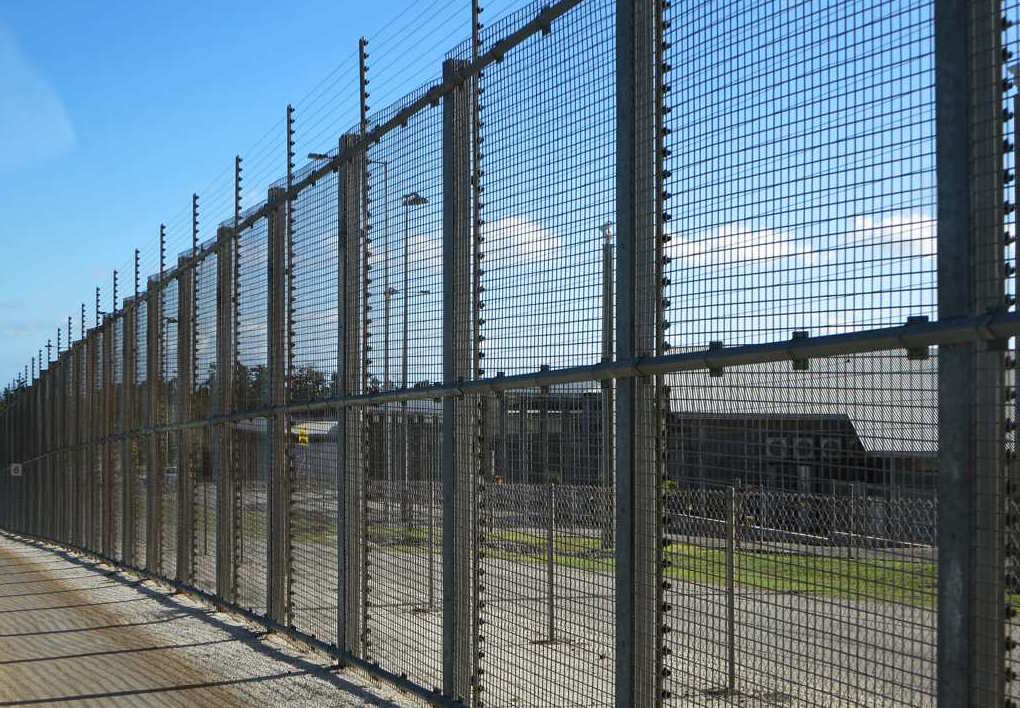“During the 2016-2017 fiscal year, 6,251 migrants in Canada were detained and spent a total of 131,617 days in detention, according to CBSA statistics,” reports a detailed article in The Link.
“These numbers are not an anomaly. Nearly 36,000 people have been detained between 2012 and 2017. At least 16 migrants have died in detention in Canada since the year 2000. Child separation and the detention of minors, though not as widespread as in the U.S., are not unheard of.”
A 2014 Red Cross investigation revealed that these types of facilities face problems like overcrowding cells, lack of support for children, and in some cases when the facilities were full, migrants were held in provincial jails alongside prisoners. The Canadian Red Cross continues to monitor the existing detention faciities in Quebec, Ontario, Alberta, British Columbia and Manitoba (as of 2014).
According to the article in The Link, in response to deteriorating conditions and overcrowding in detention facilities, the Liberal government launched the National Immigration Detention Framework (NIDF). The majority of the $138 million in federal funding over a period of five years is going to the construction of two new dedicated detention centres, one of which is currently under construction in Laval. Instead of dedicating money to prisons, however nice, perhaps the government should focus its money and efforts on supporting immigrants and improving the application process.
The Quebec National Assembly has also passed Bill 9, which will cancel 16,000 applications for immigration under Quebec’s skilled worker program and revamps the process for immigration, notably adding a “values test” to prove that applicants’ values align with the province’s and demonstrate their proficiency in French. Therefore, many more people may end up falling out of the system and considered illegal if they cannot go back home.
Seventy organizations have signed a statement vowing to work against the construction of the Laval facility. This toolkit lists a few of these organizations which have been working to support immigrants and organize against the Laval detention centre in Quebec.
Association québécoise des avocats et avocates en droit de l’immigration (AQAADI):
Has been leading the legal charge against Bill 9. They succeeded in getting an injunction before the bill was passed by the National Assembly and, now that it has passed, its members will continue to work with immigrants and AQAADI will continue to pursue legal avenues to stop Bill 9.
A group of people opposed to borders and prisons, organizing popular education events, demonstrations and actions against the construction of the Laval migrant prison. For more information on the construction of the new migrant prison, visit this site.
A migrant justice network based in Montreal, active since 2003. They are comprised of migrants and allies, and organize together to support individuals and families who are confronting an unjust immigration and refugee system. They engage in popular education, support work, as well as political mobilizations, including demonstrations, pickets, delegations, and direct actions.
Association des juristes progressistes:
A group of lawyers, students and workers who are united in working for the rights of people and determined to advocate so that the law supports social justice and the end of inequality.
Les Mexicain-es uni-es pour la régularisation:
Endorses the right to migrate and remain in Canada without discrimination based on origin or nationality. They denounce the detention centres and the private security companies that benefit from the imprisonment and suffering of migrants. Given the state of war against the people of Mexico and widespread violence by organized crime, they demand that the Canadian government impose an immediate moratorium on deportations and regularize all Mexican asylum-seekers.
Fédération des femmes du Québec:
An independent feminist organization which works for the transformation and end of sexism and patriarchy in all spheres of life. They work for the independence of women and the true recognition of their contribution to society.
Maya Bhullar is the Activist Toolkit Coordinator at rabble.ca. She has over 15 years of professional experience in diverse areas such as migration, labour, urban planning, and community mobilization.
Photo: David Stanley/Flickr




